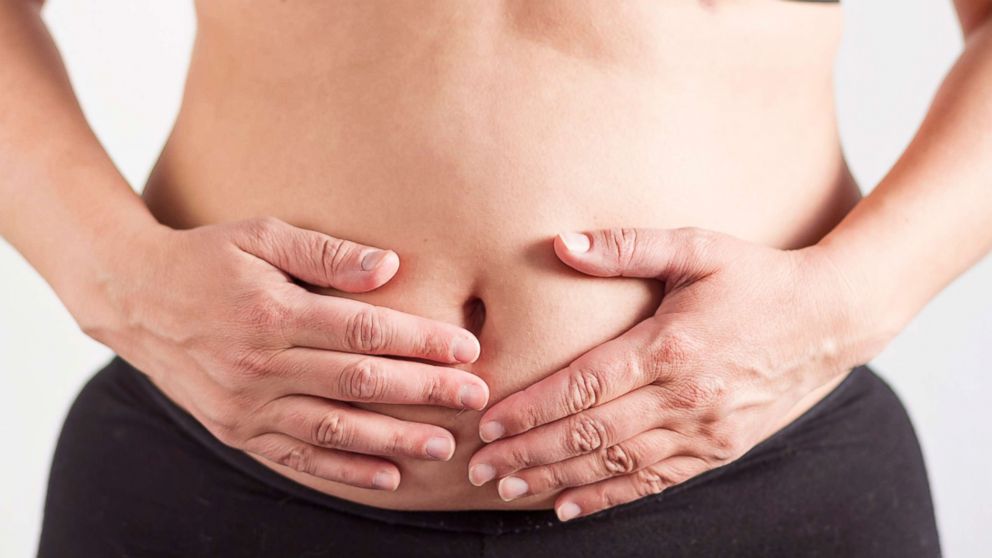Bloating Be Gone: Unravel The Mystery Behind Your Bloated Belly
Bloating – that uncomfortable puffy feeling in your belly – is a common discomfort that many people experience. It's not just about the physical discomfort; bloating can also affect your confidence and how you feel in your clothes. Whether it’s a chronic issue or an occasional annoyance understanding the causes and solutions for bloating is key. In this comprehensive guide we'll explore various aspects of bloating including quick relief methods bloating during pregnancy and its relation to weight loss.
Understanding Bloating
Bloating occurs when your gastrointestinal tract is filled with air or gas. It can cause your belly to feel swollen hard and visibly bigger. The sensation often comes with other symptoms like gas abdominal discomfort and a feeling of fullness.
Bloating is a common digestive issue where the belly feels swollen after eating. It is often caused by excess gas production or disturbances in the movement of the muscles of the digestive system leading to a feeling of fullness and abdominal swelling. Bloating can also be accompanied by other symptoms such as gas abdominal pain and a rumbling or gurgling stomach. It's important to note that while bloating can cause discomfort and a noticeable swelling of the stomach it does not necessarily indicate a significant health concern. However understanding its causes triggers and remedies is key to managing this condition effectively.
What Is Bloating?
Bloating is a condition where your belly feels full and tight often due to gas in the digestive system. This sensation can also be accompanied by visible swelling or distention of the stomach area. Bloating is not just about discomfort or appearance; it's an actual change in the gastrointestinal tract. Gas buildup and changes in the way muscles contract and move food along can contribute to this feeling. It's a common symptom of many digestive disorders but can also occur due to dietary habits lifestyle factors and sometimes more serious medical conditions.
How To Prevent Bloating?
Preventing bloating involves a combination of dietary changes lifestyle modifications and awareness of one's body. Here are key strategies to help prevent bloating:
- Mindful Eating: Slow down while eating and chew your food thoroughly. Eating quickly can cause you to swallow air leading to gas and bloating.
- Watch Your Diet: Identify and limit foods that trigger bloating. Common culprits include carbonated drinks beans lentils wheat and cruciferous vegetables like broccoli and cabbage. Keeping a food diary can help pinpoint specific triggers.
- Stay Hydrated: Drinking plenty of water helps to move digestion along and prevents constipation which can lead to bloating.
- Limit Artificial Sweeteners: Some artificial sweeteners can cause bloating and gas. Try reducing the intake of foods and drinks that contain sweeteners like sorbitol and xylitol.
- Exercise Regularly: Physical activity helps to move gas through the digestive tract and can alleviate the symptoms of bloating.
- Manage Stress: High stress levels can impact your digestive system and exacerbate bloating. Practices like meditation yoga and deep breathing exercises can help manage stress.
- Eat Fiber Gradually: While a high-fiber diet is beneficial adding too much fiber too quickly can cause gas and bloating. Increase your fiber intake gradually to allow your body to adjust.
- Avoid Smoking: Smoking can lead to swallowing excess air which can cause bloating.
- Check for Food Intolerances: Bloating can be a symptom of food intolerances such as lactose or gluten intolerance. If you suspect a food intolerance consult with a healthcare professional for testing and dietary advice.
- Consider Probiotics: Probiotics can help balance the gut microbiota and reduce symptoms of bloating especially for people with digestive disorders.
By incorporating these preventive measures you can significantly reduce the occurrence of bloating and maintain a more comfortable and healthy digestive system.
Causes Of Bloating
Bloating can be attributed to a variety of factors ranging from dietary habits to underlying medical conditions. While for some it might be an occasional inconvenience for others it can be a recurring issue affecting their quality of life. Let's delve into the common causes of bloating to understand why it happens and how you can identify potential triggers in your life.
- Diet: Certain foods and beverages are known to cause gas and bloating. These include carbonated drinks beans dairy products for lactose-intolerant individuals and high-fiber foods.
- Eating Habits: How you eat can contribute to bloating. Eating quickly talking while eating or drinking through a straw can lead to swallowing excess air.
- Medical Conditions: Bloating can also be a symptom of various medical conditions including irritable bowel syndrome (IBS) acid reflux and in rare cases more serious gastrointestinal problems.
How To Get Rid Of Bloating Fast?
Dealing with bloating can be uncomfortable and frustrating but there are several quick and effective strategies to alleviate this condition. From dietary adjustments to lifestyle changes these solutions can help reduce the feeling of bloating and bring quick relief. In this section we will explore some of the most effective methods to get rid of bloating fast and prevent its recurrence.
- Hydrate Well: Drinking plenty of water helps to move fiber through your digestive system and reduce constipation a common cause of bloating.
- Exercise Regularly: Physical activity stimulates the bowels helping to relieve gas and reduce bloating.
- Limit Sodium: High sodium intake can cause the body to retain water leading to bloating. Reducing salt intake can help alleviate this.
- Peppermint Tea: Peppermint has natural antispasmodic properties meaning it can relax the muscles of the GI tract and relieve bloating.
- Probiotics: These can help balance the gut microbiota and reduce symptoms of gas and bloating especially for people with digestive disorders.
Bloating During Pregnancy
Bloating is a common symptom experienced by many women during pregnancy. Due to the various changes occurring in the body including hormonal fluctuations and physical adjustments bloating can become more frequent or severe. Understanding the causes and safe management techniques during pregnancy is crucial for the comfort and health of both the mother and the developing baby. Let's explore how to handle bloating during this special time.
- Causes: Hormonal changes during pregnancy can slow down the digestive system leading to bloating. The growing uterus also puts pressure on the stomach and intestines exacerbating the feeling of bloating.
- Management Tips: Eating smaller more frequent meals can help. It's also essential to stay hydrated engage in light exercise and avoid gas-inducing foods.
Bloating and Weight Loss
- Misconception: Bloating is often mistaken for weight gain but it’s usually related to the digestive system and not actual fat accumulation.
- Impact on Weight Loss Journey: While bloating itself doesn’t affect body fat it can impact motivation and self-image during a weight loss journey.
- Dietary Changes for Weight Loss and Bloating: A diet focused on whole foods rich in fiber and low in processed foods and sugar can aid in both weight loss and reducing bloating.
When to See a Doctor?
If bloating is persistent accompanied by symptoms like severe abdominal pain blood in stools or significant and unintentional weight loss it’s important to seek medical attention.
Conclusion
Bloating can be a bothersome issue but with the right knowledge and lifestyle adjustments it can be effectively managed. Remember while temporary bloating is common persistent bloating should be evaluated by a healthcare professional. By understanding the causes and remedies for bloating you can take steps towards achieving comfort and a flatter belly.







